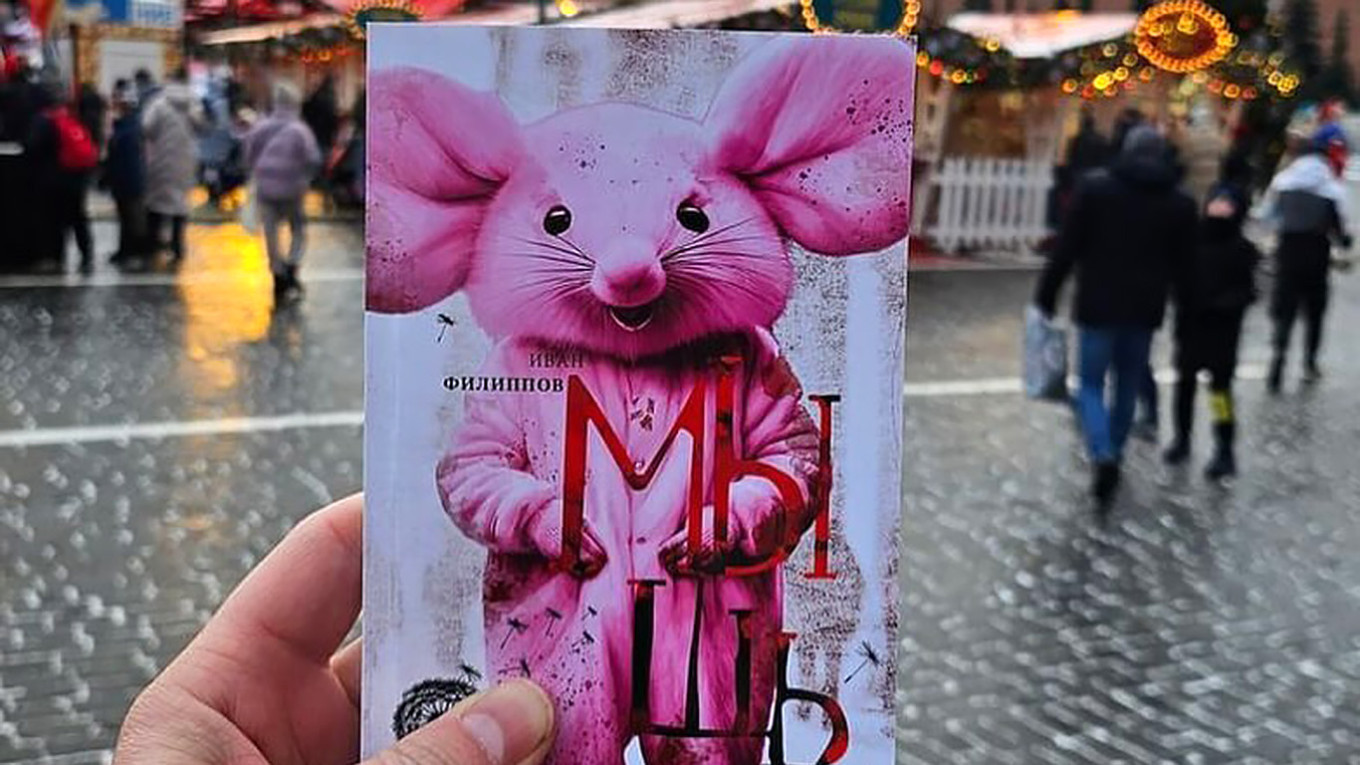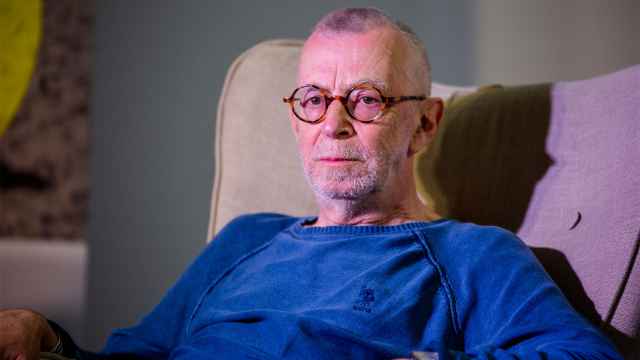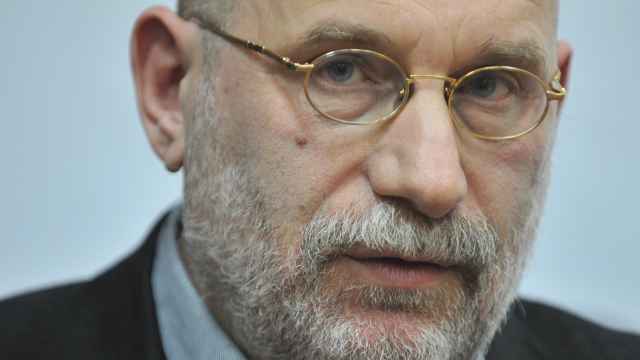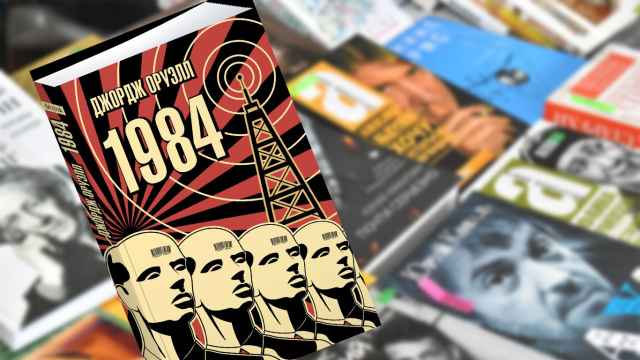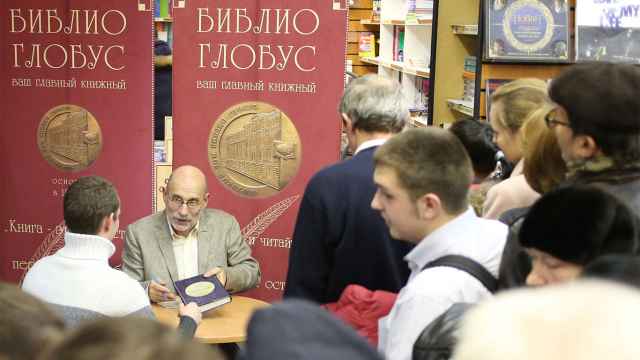Writer Ivan Filippov’s novel “Mouse” (“Miysh’”), about a zombie apocalypse in Moscow, was pulled from Russian bookstore shelves this month on the Prosecutor General’s Office’s orders.
The news came from Georgy Urushadze, founder of the book’s publisher Freedom Letters. Luckily for the publisher, sales of the book only increased after the announcement.
Freedom Letters is one of the new publishing houses established by Russians who fled their home country after the full-scale invasion of Ukraine. These publishers are now being called “tamizdat” (published abroad), similar to the better-known term “samizdat,” which refers to self-published books that proliferated in the last decades of the U.S.S.R.
Urushadze published a screenshot of the Prosecutor General’s statement, which purports that the book “contains false reports of acts of terrorism or other inaccurate information of public importance, which creates a threat of harm to life and (or) health of citizens, property, as well as a threat of mass disruption of public order and (or) safety.”
Filippov himself said that several pro-war propaganda channels complained about his novel, which might have been what prompted the Prosecutor General’s Office to interfere. One of them said that Filippov describes a fantasy beloved by liberals: coup d’etat, anarchy, death and blood.
“Mouse” was published in 2023, but the action actually takes place in 2020. The reader immediately realizes he’s in pre-war Moscow: McDonald’s is still around, as is Alexei Navalny.
“Mouse” is a dystopia where the titular infected rodent escapes the lab at the fictional Institute of Functional Immortality and starts a deadly pandemic in Moscow. The virus kills some and turns others into zombies.
The book starts with a lengthy prologue about the establishment of the Institute of Functional Immortality, which reads like something out of Bulgakov: a young and ambitious scientist is hired to keep Brezhnev’s brain alive for a few more years. Failing at that, he is tasked to save Andropov and then Chernenko (who followed each other in quick succession).
The institute is largely forgotten during perestroika (Gorbachev doesn’t believe in immortality), but interest in it is renewed when President Vladimir Putin comes to power.
“The president would like to live at least till 120,” says an emissary of the president whose bald patch and stammer sound a lot like Alexander Voloshin, Putin’s former chief of staff.
Putin is not the only public figure mentioned by name in the novel. There are also short scenes about gruesome deaths that befall top state propaganda influencers like Channel One anchor Vladimir Solovyov or RT chief editor Margarita Simonyan. The latter is presumably eaten by a colleague in her office, where she planned to hide out during the pandemic, while the former is not-so-accidentally killed by one of the main characters.
Of course, for many readers the most memorable scene is when Putin gets eaten by the governor of the Tambov region: “in several leaps he crossed the long table that separated him from the irreplaceable President of the Russian Federation, and took a satisfying bite at his neck.”
These scenes are meant as comic relief, while the book itself is not a comedy or even satire as some reviewers suggested, but a straightforward dystopian thriller. The virus itself is just a plot device: it doesn’t look like the author was trying to come up with a convincing pandemic story. The transmission mechanism is never fully explained and leaves a lot of questions. For instance, it’s not clear why the virus doesn’t spread to the survivors when they engage with the zombies.
The novel’s plot revolves around six people from all walks of life trying to survive in dystopian Moscow full of zombies: two brothers Seva and Kostya (one — a teenager and the other — a preteen), Lavr, a biologist convicted of state treason and Tonya, his prison guard, Rasul, a Yandex food delivery courier from Dagestan, and Asya, a female theater student from the Vladimir region.
In how these very different Russians interact and cooperate lies the author’s true interest. Filippov explores inter-ethnic tensions, gender stereotypes and class differences and he does it in a very smart and subtle way. Unfortunately, just when we start getting to know the characters, their backstories and motivations, the book abruptly ends.
The authorities carpet bomb Moscow while asking the survivors to wait for a safe passage. I won’t spoil much by saying that after the fall of Moscow, Russia re-emerges as a democracy once again, ready to cooperate with the rest of the world. A liberal fantasy indeed.
A Message from The Moscow Times:
Dear readers,
We are facing unprecedented challenges. Russia's Prosecutor General's Office has designated The Moscow Times as an "undesirable" organization, criminalizing our work and putting our staff at risk of prosecution. This follows our earlier unjust labeling as a "foreign agent."
These actions are direct attempts to silence independent journalism in Russia. The authorities claim our work "discredits the decisions of the Russian leadership." We see things differently: we strive to provide accurate, unbiased reporting on Russia.
We, the journalists of The Moscow Times, refuse to be silenced. But to continue our work, we need your help.
Your support, no matter how small, makes a world of difference. If you can, please support us monthly starting from just $2. It's quick to set up, and every contribution makes a significant impact.
By supporting The Moscow Times, you're defending open, independent journalism in the face of repression. Thank you for standing with us.
Remind me later.


